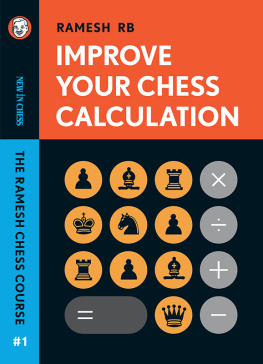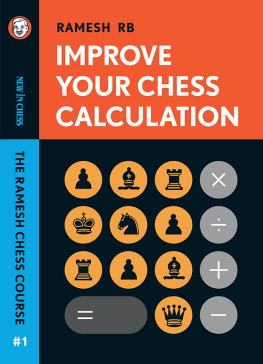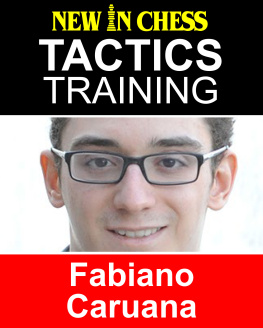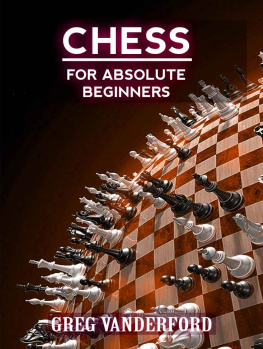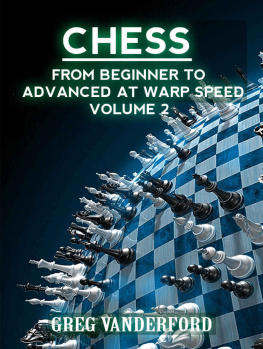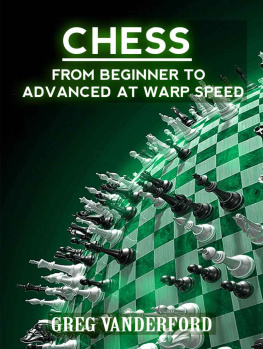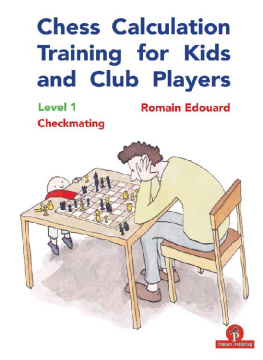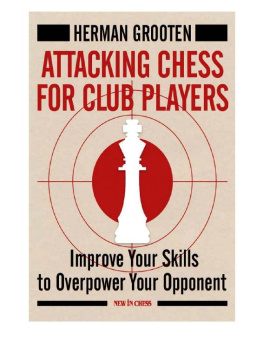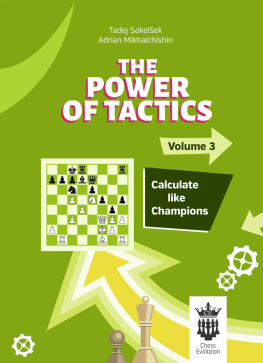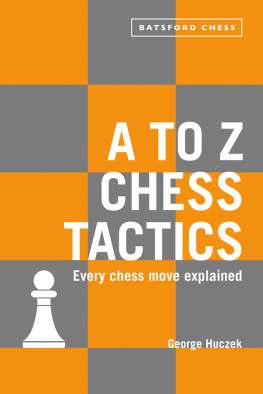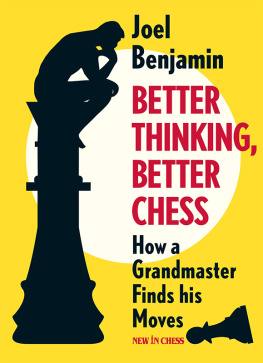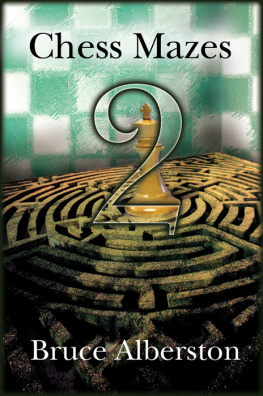Improve Your Chess Calculation
Ramesh RB
Improve Your Chess Calculation
The Ramesh Chess Course, Volume 1
New In Chess 2022
2022 New In Chess
Published by New In Chess, Alkmaar, The Netherlands
www.newinchess.com
All rights reserved. No part of this book may be reproduced, stored in a retrieval system or transmitted in any form or by any means, electronic, mechanical, photocopying, recording or otherwise, without the prior written permission from the publisher.
Cover design: Rouwhorst + Van Roon
Supervision: Peter Boel
Proofreading: Joe Petrolito, Mariska de Mie
Production, editing, typesetting: Sandra Keetman
Have you found any errors in this book?
Please send your remarks to and implement them in a possible next edition.
ISBN: 978-90-5691-997-9
Explanation of Symbols
The chessboard with its coordinates:
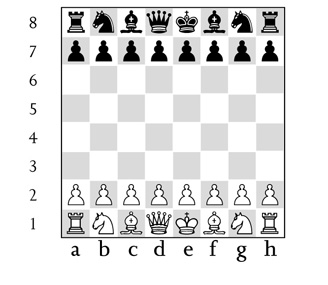

| White to move |

| Black to move |
King |
Queen |
Rook |
Bishop |
Knight |

| White stands slightly better |

| Black stands slightly better |

| White stands better |

| Black stands better |
+ | White has a decisive advantage |
+ | Black has a decisive advantage |
= | balanced position |
! | good move |
!! | excellent move |
? | bad move |
?? | blunder |
!? | interesting move |
?! | dubious move |
# | mate |
ch | championship |
zt | zonal tournament |
izt | interzonal tournament |
ct | candidates tournament |
tt | team tournament |
ol | olympiad |
m | match |
cr | correspondence |
Foreword by Viswanathan Anand
RB Ramesh is one of the most illustrious personalities of Indian chess, who had a successful playing career being part of the Indian Olympic team in 1996 and 2002, subsequently becoming a grandmaster in 2003, with his most famous victory being the British Chess Championship in 2002.
After retiring from competitive chess in 2008, he established his training institute, the Chess Gurukul which has been an impressive talent factory since its inception. He has been a trainer or coach of almost all the top Indian chess players since then, with Harikrishna, Adhiban, Sethuraman, Aravindh, Praggnanandhaa, Karthikeyan and Vaishali being an impressive array of top stars he has worked with. Befitting his training work, his wards have brought countless international titles and close to about 50 medals to the country.
Another of Rameshs achievements is being the captain of the Indian chess team at the Chess Olympiad between 2012 and 2018, with the team bagging a historic bronze at Troms, Norway, 2014. I experienced his captaincy myself at the Batumi Olympiad 2018 and appreciated his perspective on chess.
The accolades which have come his way and the achievements of his students stand testimony to the hard work and dedication Ramesh has shown towards his profession. Ramesh has also invested a lot of time in chess research.
Working with so many chess talents has also resulted in Ramesh developing excellent structures in his coaching methods. The current series of books aim to share his knowledge as a player as well as a coach. He deals with calculation in this first one the typical mistakes players make while calculating, the reasons such mistakes are made, and possible solutions. His experiences as a chess coach really shine through, as it is obvious that he developed his methods through practical experiences of his students over the years. Since he has worked with players in varying stages of their development, he is able to select positions that all can benefit from.
I know from both my junior days and my World Championship matches that carefully selected positions can challenge you to go deeper and also show you the weaknesses in your thought process, and I am confident that everyone will benefit from the exercises in this book.
Vishy Anand
Chennai, March 2022
Introduction
At the outset, I submit that I do not feel qualified to write about a vast, intricate, and at the same time essential subject like improvement in chess calculation skills. That I even attempted such an exercise is motivated by the following reasons. As a chess coach, I have realised that in this critical aspect of chess, many players struggle a lot to make significant progress. I have worked with many talented young players and many grandmasters over the last two decades. I have seen first-hand how these strong players made progress in their analytical skills in general and their calculation skills in particular. I hope this book will act as a medium to share the knowledge and experience I acquired with a larger audience.
This book is written more by an experienced and reasonably successful chess coach than by an author. English, not being my mother tongue, is something I learned poorly at school! So, there could be many places where the choice of words may not be appropriate or correct. Forgive me for any mistakes related to language/grammar. I have tried my best to convey my thoughts as well as I could.
During my days as a player (effectively, my playing days were from 1989-2008), I faced many practical problems related to different aspects of the game. Some of my chief concerns were: how to improve my calculation skills, endgame technique, positional understanding, building an opening repertoire, etc. Chess improvement is a journey from where we are to where we should be, with its inherent challenges.
Until 1998 or so, we (my generation of players in India) did not have access to good chess books, computers, and coaches. Most of the solutions we came up with were mainly by trial and error and from personal experience. Such an approach to improvement had its virtues and shortcomings.
Subsequently, when I started reading chess books by acclaimed authors, initially I felt a world of information was thrown open to me. I could perceive things differently than earlier. I thought I had access to everything I needed to solve my doubts and problems. I am very thankful to all the great authors who have enriched my chess education. It felt as if becoming a stronger player was just a matter of time and hard work.
But with time, I also realised that there are a few critical areas where the books did not venture into with full conviction. One primarily ignored area was how to learn and acquire the necessary skills in chess education: the practical difficulties a player faces while trying to learn different aspects of the game, the reasons for such problems, and the methods to overcome them. A player must successfully navigate many psychological battles to convert the knowledge he has acquired by reading a book into a practical skill to apply in his games.
Next page
